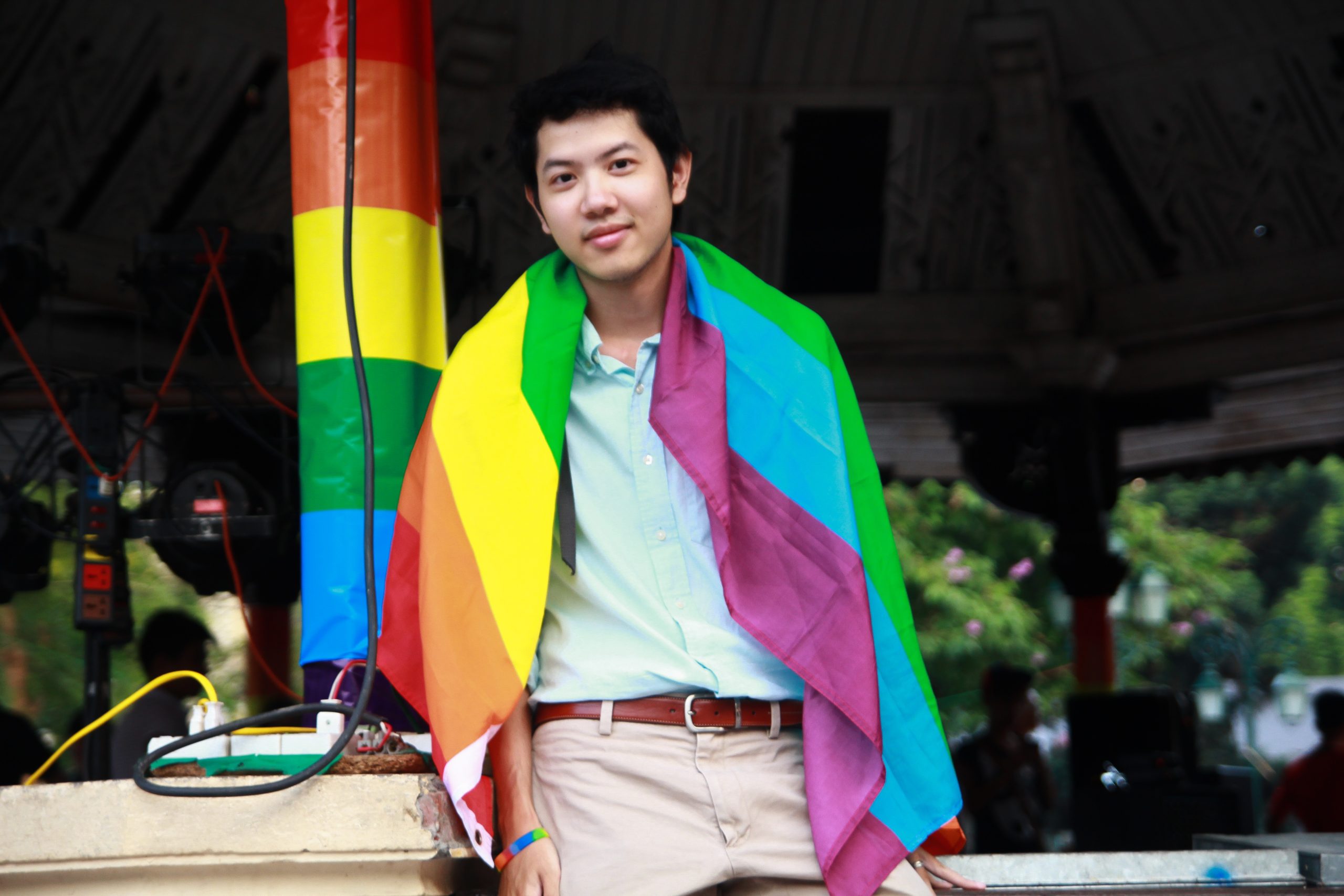
Human rights defender's story: Huy Luong from Vietnam
Huy Luong works for iSEE based in Ha Noi City, Vietnam. He is a LGBT human rights defender who undertakes public awareness and education campaigns in Vietnam on LGBT issues. He is also engaging around Vietnam’s upcoming Universal Periodic Review, which will take place in January 2014.
Huy Luong began his career as a LGBT rights activist in 2008 when he began volunteering with Information Connecting and Sharing (ICS), while still a student. ICS was the first LGBT organisation in Vietnam.
Its primary mission at that time was to change the damaging and negative portrayal of LGBT persons in the media. ICS undertook an awareness raising campaign to address this challenge. Five years later, Huy recounts a dramatic turnaround in the attitude of the media, to a position of strong support for the LGBT community.
Inspired by the power and potential of public education, Huy today works with iSEE (Institute for Studies of Society, Economics and Environment) carrying out awareness and education campaigns with journalists, healthcare providers, trade unions and parents of LGBT persons.
“The power of tradition is Vietnam is such that the source of most attacks on LGBT people is their own family.”
Huy relates that iSEE still encounters initial discomfort from the people it tries to engage with. LGBT issues are seen as taboo, something not to be spoken about. The source of these attitudes is not religion, but culture and tradition. The power of tradition is such that the attacks and pressure LGBT people face in Vietnam do not come from the general population, but from people’s families, driven by an overriding concern that they should not be seen to be flouting ‘tradition’.
iSEE has hope that by continuing to engage the public a point will be reached at which these issues are ‘normalised’ and people feel comfortable discussing them and accepting them.
“Five years ago LGBT people would insist on having their identities concealed in the media, today they are proud of their identities and want to claim them.”
For Huy, the best result of the work being done by iSEE is the pride that LGBT persons now feel in their identities. Whereas five years ago LGBT people would insist on having their identities concealed in the media, today they will insist on being identified. While four or five years ago it was almost impossible to come out, now people are proud of their identities and want to claim them.
“There is still a need to change knowledge and attitudes at the highest level.”
In Vietnam while there are no laws that criminalise homosexual behaviour there are also no laws that protect the LGBT community from discrimination or harassment, and the community does not enjoy equal rights, in particular in the area of the family. iSEE takes every opportunity to engage on these issues. For example iSEE campaigned to have the new constitution framed in a gender neutral way, and for equal marriage rights.
Unfortunately attitudes within the Government remain resistant. While a ban on same-sex marriage was overturned in the Marriage and Family Bill adopted last week by the National Assembly, the bill does not legalise registered partnerships between people of the same sex. Likewise the new constitution adopted last week does not reference the right of everyone to marriage, and is framed within a male-female gender binary.
One upcoming issue on which iSEE will be working is the rights of trans people. Currently trans people cannot change their names and cannot undergo a sex change in Vietnam. While some leave the country to have surgery, once they return they cannot change their identity papers, making it impossible to find a job or get health insurance, amongst other things.
“The UPR opens up channels of cooperation with the Government. We want to see a recommendation made to Vietnam on LGBT issues for the first time.”
Recently Huy has been engaging on behalf of iSEE in the pre-sessions for the 18th Universal Periodic Review, which will take place in January 2014.
Huy points out that in the first cycle there were no recommendations made to Vietnam on LGBT issues. iSEE’s goal is for governments to make such a recommendation to Vietnam for the first time.
Huy notes that many activists say that the UPR is very weak and question the difference it makes. They say that governments treat the recommendations coming from the international system as ‘optional’ and feel comfortable rejecting or not responding to those they do not agree with.
Huy however sees potential in the international system as a tool to promote the rights of LGBT people. First of all, it’s important in itself that LGBT issues are raised in the context of Vietnam for the first time at the international level.
Secondly, once raised, such recommendations can play an important role in domestic advocacy. If Vietnam accepts a recommendation on LGBT issues, then there will be a great deal of work to do monitoring and assessing its implementation.
Even in the case where Vietnam chose to reject recommendations on LGBT issues, Huy still sees utility in working to uncover and understand the reasons behind the rejection. This can serve to focus advocacy on addressing the underlying hostility or reluctance to promote LGBT issues.
Huy plans to continue to engage internationally and especially as defenders again look to the Human Rights Council to adopt a follow-up resolution on sexual orientation and gender identity. He will be hoping to encourage Vietnam, a newly elected member of the Council, to play a positive role in such an initiative.
For more information on the work of Huy Luong and iSEE see http://www.isee.org.vn/en
